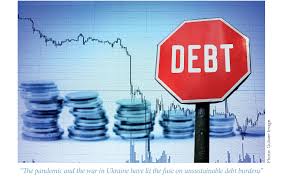ISLAMABAD, Oct 20 (INP WealthPK): Pakistan has long been struggling to achieve export-led economic growth, but with little success.
This challenge can be overcome by employing modern technology, diversifying products and seeking new export destinations.
Talking on the matter, Dr Uzma Zia, a senior research economist at the Pakistan Institute of Development Economics (PIDE), Islamabad, told WealthPK that exports’ share in Pakistan’s economy has been traditionally low. “A strong focus on boosting exports can really put the country’s economy on a sustainable growth trajectory.”
She noted that efforts were needed to ensure export diversification and explore new markets for Pakistani products.
Uzma Zia said: “We are producing less diversified and less sophisticated products. Exports are concentrated in a few product ranges. Due to dependency on a few sectors, there is uncertainty and instability in export earnings.”
The PIDE economist pointed out that almost 75% of Pakistan’s total exports are concentrated in textiles (40%), apparel (23%), and rice and leather.
She maintained that there were sectors having the potential to push up total exports, which was possible through policy support. “These sectors include engineering, pharmaceutical, auto, food and beverage processing, footwear, chemicals, meat, poultry, seafood, fruits and vegetables.”
She emphasised that there was also a need to focus on the services sector, including transport, logistics and tourism to expand the export base.
The PIDE researcher highlighted that Pakistan had traditionally focused on only a few markets for exports, and that efforts should be launched to seek out new markets, especially for textiles to thrive.
Uzma Zia said that emerging economies, including Brazil, India, Nigeria, China and South Africa, were rapidly expanding their outreach in the international trade, boosting their economies through increasing exports as a percentage of their GDPs.
She also appreciated the policy initiative taken by the ministry of commerce to have enhanced trade relations with African countries.
During the last decade, she noted Bangladesh, Thailand and Vietnam performed better than Pakistan in international trade.
She said that Pakistan’s export promotion and liberalisation policies to seek market and product diversification had yet to take off effectively, pointing out that factors that contributed to insufficient export-led growth included less diversification of products, a decline in investment and savings, inconsistent policy considerations, a lack of research and development, less inclination to adopting technology, patenting and property rights, no focus on branding, trade deficit and over-reliance on export financing and subsidies.
“Fluctuations in export growth occur due to energy shortages, inefficient allocation of resources, and inefficiencies of supply chain.”
Moreover, she said the business environment was not conducive to attracting foreign investment. “Furthermore, policy interaction is lacking and high import costs limit firms’ appetite for export growth, thus enticing them to focus on local consumption.”

























